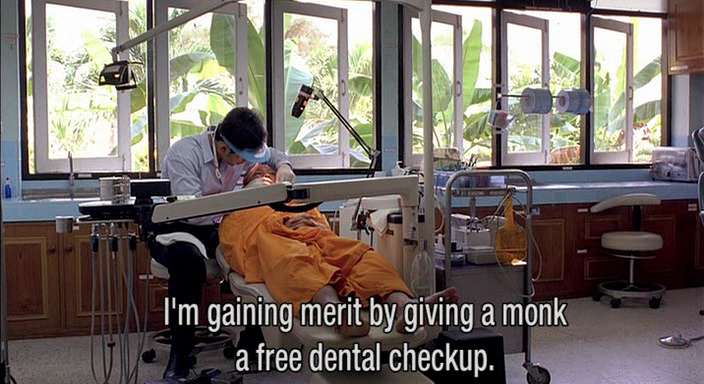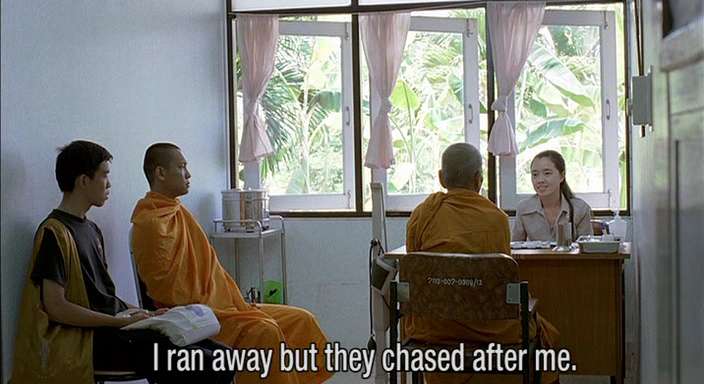
10-minutni video. Može li ti se preobratiti život ako svoje ime promijeniš u Voda? Što o tome misle rijeke, poplave, oblaci i hidrocentrale?
Since she appeared in my film in 2009, Jenjira Pongpas has changed her name. Like many Thais, she is convinced that the new name will bring her good luck. So Jenjira has become Nach, which means water. Not long after, she was drifting online and encountered a retired soldier, Frank, from Cuba, New Mexico, USA. A few months later they got married and she has officially become Mrs. Nach Widner.
The newlyweds found a house near the Mekong River where Nach had grown up. She spends most of her day crocheting baby socks for sale, while he enjoys gardening and watching television (sometimes without the sound because most of the programs are in Thai).
Cactus River is a diary of the time I visited the couple--of the various temperaments of the water and the wind. The flow of the two rivers--Nach and the Mekong, activates my memories of the place where I shot several films. Over many years, this woman whose name was once Jenjira has introduced me to this river, her life, its history, and to her belief about its imminent future. She is certain that soon there will be no water in the river due to the upstream constructions of dams in China and Laos. I noticed too, that Jenjira was no more. --Apichatpong Weerasethakul
"Filmmaker Apichatpong Weerasethakul‘s newest work, the Walker-commissioned short video Cactus River (Khong Lang Nam), makes its debut October 13, 2012, on the Walker Channel. The six-month exclusive run of the work marks the Channel’s first artist commission...bonus:
...With Cactus River, the work’s title provides the sense of mystery that we have come to know through all of Weerasethakul’s work: a desert plant with the name of a waterway. It doesn’t make geographic sense, but conjures an image of what will happen to the Mekong if anticipated dams are built — making a veritable cactus-filled river. But this is more than a film about last year’s floods in Thailand and the threat of drought. In describing Cactus River, Weerasethkul tells the story of how actress Jenjira Pongpas changed her name to Nach, which means water. She has acted in his films since 2009, including Syndromes and a Century and Uncle Boonmee, both of which screened at the Walker in 2011. Convinced that her new name will bring good luck, Nach soon meets and marries Frank, a retired soldier from the small US town of Cuba, New Mexico. Cactus River opens with a scene of Nach and her husband in their new home on the Mekong River as they go about their daily life. She is cooking or knitting baby socks for sale while he gardens and watches a Thai television program with the sound turned off. We see the wind off the nearby river and the flowing of two waters, Nach and Mekong.
Cactus River is Weerasethakul’s diary of his visit with the couple. He explains, “The flow of the two rivers — Nach and the Mekong — activates my memories of the place where I shot several films. Over many years, this woman whose name was once Jenjira has introduced me to this river, her life, its history, and to her belief about its imminent future. She is certain that soon there will be no water in the river due to the upstream constructions of dams in China and Laos. I noticed, too, that Jenjira was no more.”" —Walker Arts Center
Ashes:
Sud sanaeha:



Nema komentara:
Objavi komentar